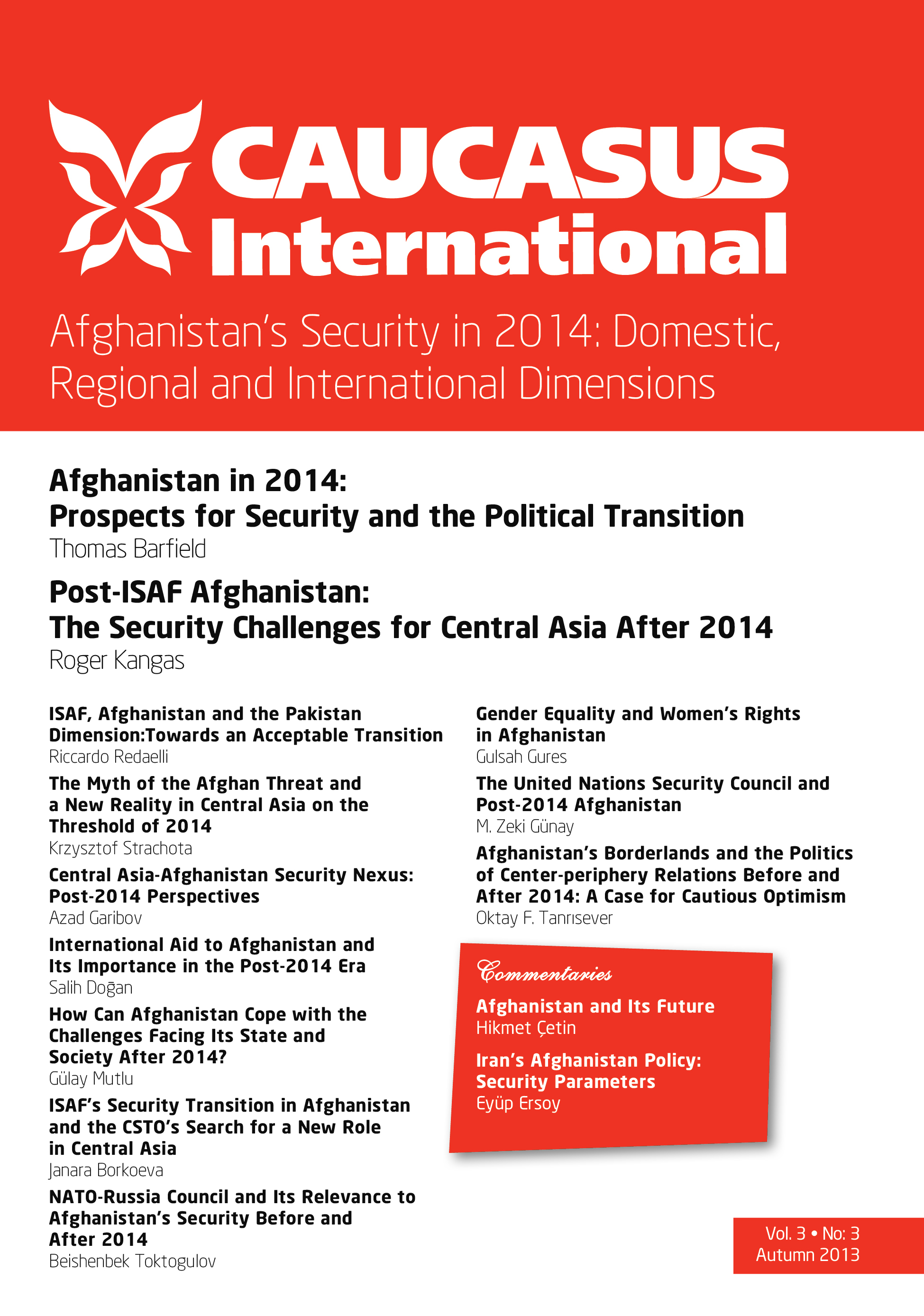Post-ISAF Afghanistan: The Security Challenges for Central Asia After 2014
This paper is a critical engagement with the competing narratives of the great game politics taking place in Central Asia among China, Russia, and United States. It argues that the region has changed over the past twenty years, and this must be taken into account when examining the regional influence of outside countries. At this juncture, the author suggests that Central Asian countries are increasingly looking at the world not in terms of Russia-versus-the-West, but rather based on a 360-degree view, which means that they are looking to a wider range of nations with which to trade and develop relations. Therefore, they are resorting to the understanding that their future lies not in being dominated by one country or alliance, but rather in establishing “multi-vectored foreign and security policies”. However, this does not imply that countries in the region have unilaterally ended external intervention attempts or coercion. It is rather a consequence of the strengthening of independent political will of Central Asian states, along with the diminishing attraction of the region in global oil and gas markets. Within this general framework, the paper attempts to answer the following questions: Will the security problems of Afghanistan seep into Central Asia after the NATO mission ends in the country, or will it adversely affect the ability of the respective regimes to instill a sense of security within their own territorial boundaries? A further question is whether diminished energy interests and the absence of a major security concern will cause United States to view Central Asia as “unimportant?” If the answer to this question is yes, should we assume that Russia and China are now de facto dominating Central Asia?
Latest news
- 03/17/2020 Call for Submission: “Non-Alignment Movement and Its Perspective in International Affairs”. Deadline: 1 July 2020 2624 views
Popular articles
- 02/24/2020 The Role of Irredentism in Russia’s Foreign Policy 2535 views
- 02/24/2020 Construction of sub-national identity vis-à-vis parent state: Gagauz case in Moldova 2218 views
- 02/24/2020 The Conflict in Ukraine - The Geopolitics of Separatism and Divergent Identities (Commentary) 2072 views
- 02/24/2020 The Role of the Soviet Past in Contemporary Georgia 2044 views





